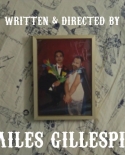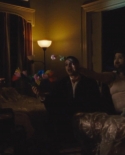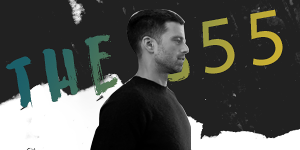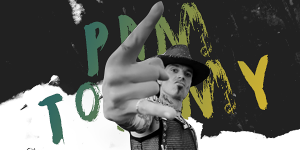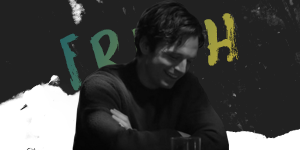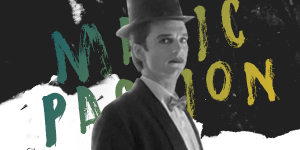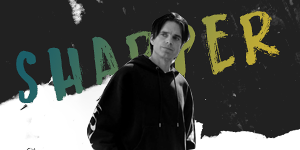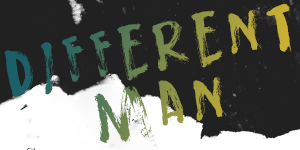- By manon
- On March 23, 2022
- With 0 Comments
- Filed Under fresh, gallery, interview, photoshoot, scans

Sebastian Stand and his ‘Fresh’ co-star Daisy Edgar-Jones have been photographed by Carlos Serrao and Monica May for The Phone a Friend Issue of Flaunt Magazine, out pretty soon! The co-stars also gave an interview to the magazine. You can find all the photos and the interview right below.


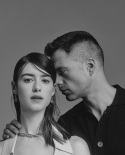
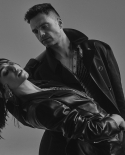
FLAUNT | Ever had a bad dinner date? It’s not the law attraction—rather the law of averages—that ensures anyone putting themselves, out there on the love-seeking scene today will encounter their fair share of whackjobs, weirdos, and ghosts. But no dating disaster you’ve been through could be worse than what befalls the characters in gripping new Rom-Com/ Horror film, Fresh (Hulu). Starring young British actor Daisy Edgar-Jones (Normal People) and seasoned leading man Sebastian Stan (Captain America: The Winter Soldier, I, Tonya, The Martian), Fresh begins by exploring the dynamics of the contemporary dating world… before crossing the boundaries of… taste…
Stan plays Steve, a handsome, single doctor who accidentally (but we realize later, of course, on purpose) strikes up a conversation with Daisy Edgar-Jones’ Noa in the produce aisle. It’s all so natural. They exchange numbers. He texts her. They go on a date. It’s a good date. Since they met IRL and not through an impersonal app interface, they skip a few steps and quickly get intimate. Noa’s best friend, Mollie, (played with verve by Jojo T. Gibbs) finds Steve’s lack of digital presence disturbing, but enjoying the love-buzz, Noa throws herself into her exciting new romance.
But Noa’s soon to find out—the very hard way—that behind this charming facade, ‘Steve’—a pseudonym—is really quite something else. Instead of the sophisticated getaway he promises her, she’s face to face with primal fears, and her sweet, sensitive lover is revealed to be a mix of Ted Bundy, Jeffrey Dahmer, and American Psycho, prone to Patrick Bateman-style musical interludes as he … well, that would be giving it all away. Suffice to say, in classic horror movie style, trapped in a mysterious house in the woods, Noa has to find a way to get out… And Fresh—directed by Mimi Cave, written by Lauryn Kahn, and produced by Adam McKay (Don’t Look Up, The Big Short, Vice)—is the clever, knowing, and full of suspense result.
Flaunt caught up with Daisy and Sebastian in London about Fresh, cuisine, and how they found a friendship in the midst of horror.
So how is London treating you?
SS: I think it’s been good, it’s only been 24 hours now since we’ve been here. But it’s been good—the rain is here, of course. A nice, cloudy, rainy day.
DEJ: I love it when it’s rainy in London— it’s my favorite! It’s so, you know, romantic and lovely when it rains.Daisy, you are of course a born and bred London girl. It must be nice to be home. But you’ve lived in London before, haven’t you, Sebastian?
SS: Yeah! I was in London In 2003, when I did a year at the Globe Theatre; my college, Rutgers University, had a program at the Globe, so that was the first time I was here. In 2010, I basically lived here for a year do- ing Captain America: The First Avenger, and then I was in and out of London. And then in 2019, then the pandemic, and I lived here for another six months doing another project. So, I really do like it here.
Oh, so you’re basically a local with all of that experience.
SS: Almost.
DEJ: Practically a Londoner. He still hasn’t had a Sunday roast, though. That, to me, is shocking.In all those years?
SS: I didn’t even know what that was—because usually Sundays, I keep to myself.
Right.
SS: And I was always in the hotel room crying.
Well, hopefully, you’ll have more than 24 hours on this trip, and it will include a Sunday. And a roast… So, sticking with the food theme, the subject at hand is your fantastic new film, Fresh, which I keep reading as “Flesh.” Is that just me?
DEJ: No, it’s not just you, actually, we’ve had a couple of people go, ‘I’m really excited to see Flesh!’ Well, you will see flesh in Fresh… perhaps not in the best way.
So, to Fresh. I watched it yesterday, and to be honest, I’m still kind of a bit traumatized. What was it like to work together on what is, let’s say, a very strange, post-modern ‘romance’?
SS: I guess it was bittersweet in some ways, right, because we had such a good time shooting it. We weirdly shot it chronologically, in the sense that we started it from the beginning of the story, and then… We were having so much fun kind of doing the scenes and finding the banter and the spontaneity of it, that we were always dreading the second half of the film coming at us. But we managed to keep going.
DEJ: And we had such a laugh throughout filming. I dunno, it was… especially because we did five days’ worth of night shoots in between the first two weeks of filming. Then, we had five days’ night shoots. And then we had the final two weeks in Steve’s house. So, I feel like we were always in some kind of crazy, fatigued, weird, dream-like surreal world.
SS: Yeah, the isolation of just the COVID part, you know, getting there, having to do quarantine, not being able to leave—on the one hand, I think it helped focus on the movie, because there was so much time suddenly to prepare. And then we never really did go out, so it just kind of—we would go to work and then come back and suddenly go home and then work the next day.So COVID kind of gave a ‘method’ acting feeling to the whole project, in that the second part takes place in an isolated closed-off space, and you weren’t able to go out, party, or have fun at all in real life, too?
SS: Yeah. There wasn’t a lot of time. We actually shot the movie fairly quickly once we got going. The scenes in Steve’s house came last, which was great because those were the parts that we still needed to ‘iron out’ as we were still going along. Because the connection between the characters happens at the beginning of the movie, and we had to find a way to maintain that throughout, all the way to the end, in a way that seemed realistic, and showed them yet adapting to the new, crazy circumstances.
Where did you film?
DEJ: Vancouver.
SS: And it was January, so it was really cold.
DEJ: And really rainy… And we were in the woods somewhere quite far out from the city for the night shoot stuff.
SS: A lot of rain, yeah. Lots of rain.It looks like quite a grueling shoot. But shooting chronologically, that must have been useful. For the viewer, in the beginning, you don’t know what kind of film you’re watching. From how it starts, the whole film could just be about dating, and how you two found each other and fell in love—which kind of is what happens. But then the twist is such a big twist—when you first read the script, how did you feel when the twist comes in and everything is revealed about the character of ‘Steve’?
DEJ: I feel like the script does that so well—every time you think you know when you can relax, the rug gets pulled out from underneath you in such interesting ways and ways you don’t expect. I read it not quite knowing what was coming. My agent gave me a slight warning that it was going to be dark, but I didn’t know exactly how dark. So I was reading with my jaw [dropping]…It was really a cool way of reading it.
And so you read it with your jaw on the floor, thinking, ‘I must play this part’? Or, ‘I’m not quite sure about this?’
DEJ: I thought, ‘Gosh, this could be really cool.’ But also, I was really excited by meeting Mimi Cave, our director, and she sent me through the sizzle-reel she’d made, like a mockup trailer for Fresh, using images from different films, with a really cool soundtrack, and I thought, ‘Yeah, this will really elevate, and it’s a really different and cool script. She’ll bring something amazing, visually.’ And when I found out Sebastian was playing Steve, I thought, ‘I’m in safe hands here.’ And also, the brilliant producers here who worked behind the project. We always felt like we were onto something unique.
So Sebastian, what drew you to say ‘Yes! I must be Steve; this is me.’
SS: Well, it was an unusual movie to read, because it started out so realistic to me. And then it became this other thing in the middle of it, but somehow it remained self-aware enough in ways, and it still was entertaining while it was scary. The character of Steve wasn’t entirely—I mean, he was this awful person, but then there were these moments that kind of juxtaposed with the horror of what he was doing. I just thought that was really interesting. And when I heard that Daisy had signed on, it was like confirmation—actually, I had known she signed on first before I read it. So it was great because when I read the script, I read it picturing her doing it. And I felt like, ‘Okay, now with her on board, this thing will be really elevated in a way that— her character’s going to be very intelligent and smart, so he would have to be a good match that way.’ And then it’s just the way that the control shifts in the movie, seemingly, that was really interesting in this kind of power dynamic in how she manages to take the thing that got her there in the first place and uses it for herself as a way to survive.
It’s a journey, and I felt because of some of the ‘moment’ you mention, that along the way you end up having a bit of sympathy for the devil—sympathy for Steve’s character and his background, perhaps. For the traumatic family background, he must have had that leads him toward this path towards… gourmet murder… Could that be true, do you think?
SS: Well, we never really totally go into his background in detail… But obviously, going back into researching these serial killers, you always found that, at the end of the day, their childhood and family life was just a disaster. There was so much trauma and abuse mixed with something physically happening to them, like a fall or a blow to the head, which ends up being a biological problem. Actually, I had this one clue [to Steve’s background] that I wanted to do. I worked with the hair and makeup team, and there’s a scar that he has on his stomach, but you never really see it in the movie. But I was like, ‘In case anyone ever catches it, it’s there.’ But I don’t know if it’s necessarily that we need to have sympathy for him, so much as we need to understand that sometimes the devil has many faces, and some of those faces can be charming or nice or safe-appearing or whatever. And that people are flawed. That’s what toxic relationships have always been, from what I understood—they can be these difficult things you struggle to get out of, because if you try, then they reel you back in as they bring up something else in you that you need. So it was complex enough like that, and I wanted to deconstruct and explore that.
Absolutely. At the beginning of the film, Steve comes across as the perfect man—in a way, he is too good to be true. He depicts himself in such a way that he will be impossible to resist for anyone who’s on the dating scene. A wealthy, young, single, handsome doctor? I mean. Come on. We’ve already come around to the more psychological aspects of the film, so let’s take a closer look at dating. Is dating itself a traumatic experience? And does it fuck everyone up enough to run into the arms of a Steve? Dating experiences, anyone? Nightmare dates?
DEJ: None, luckily, as bad as the two in the film. Actually, Noa’s first date with Steve, fortunately, is quite lovely, which is why she thinks she has hope. But, I think, the film definitely touches on the dating fatigue that we’ve all got and experienced. Just the difficulties of meeting people online, and just meeting people generally, and how seemingly hard it is to meet somebody. I think with Steve, you know, their first kind of spark, and the fact that he approaches her in real life, it’s like, ‘Oh, gosh, maybe he’s different.’ And they do genuinely have a connection at the beginning, and ultimately Noa is able to manipulate that to her advantage in the end. But yeah, I think that this dating fatigue is something Fresh explores very well.
SS: And it’s sort of sad, in a way, to kind of—when you unpack the first few things that bring us into this intense connection—it sort of becomes a little bit more sad. Because the romantic idea is always more interesting—that’s where romanticism came from— this idea of how romanticism tells us that it’s a feeling we should trust, and that we should always be on the lookout for the idea of our perfect ‘other’ counterpart, the One, my person, this sort of thing. We are more enslaved to the addictive chemicals that get released in our brain when we meet someone than we think. I mean, you really have to be aware enough that you’re responding [to those inbuilt chemical effects]. At the beginning of a relationship, we’re all looking for our needs to be answered. You were talking about dating fatigue, but also, there’s the fatigue of being alone, and being deprived of certain things, and being so much more aware of what you don’t have. Looking for it so badly, that when this love thing comes your way and you find any evidence of it, you’re just more prone to launch yourself into it, and not necessarily be as sharp with the red flags.Because you want something that’s too good to be true, you want it to be real. And the screenplay really does drop those little cues, and they’ve picked up on in the relationship with Noa and her best friend Mollie, who calls bullshit on those small details, like, ‘Nope, this is not right.’ And there is the plot point where you both have a very cute way of always signing off with the, ‘I love you. Love you More’ thing, and when that doesn’t happen, Mollie is like, ‘There is something wrong here.’
DEJ: I know, the fact that she is such a good friend because she can spot that, and ultimately, she really comes to Noa’s rescue. SS: Don’t take advice for granted.
I think the film shows the technology of dating today quite well, the way technology has taken over as the primary method of initiating human interaction. Could you say something about technology or social media in dating today?
DEJ: Yeah, and I always think it’s interesting that we are reduced to a social media page. There’s so much to what makes somebody themselves, and yet we’re reducing them to a series of images and captions and then prejudging them so much on that, and even when we’re swiping on people, we’re like, ‘Oh, I don’t like the way you took that picture, that’s a no.’ You so judge someone based on something so limiting, and I think that’s a shame. But also, I guess it allows you to catch certain things early; you can spot certain things before you meet someone in person you wouldn’t necessarily know on the initial meeting if you didn’t see their social media. So there’s pros and cons. But it is sort of funny, we ‘shop’ for each other now. And it really preys on self-esteem. It’s terrifying.
Yeah, like we’re Amazon products to be selected from: ‘Yes, no, let me see, hmm, save that one for later.’ To give you full dis- closure, I’ve never had a dating app, I only like to meet actual human beings, purely because there are probably a lot of Steve’s out there who represent themselves to be one thing—and it’s all a complete lie.
SS: It is terrifying. I’m thinking about younger people, right, that are going in there, and suddenly you’re encouraged to take more selfies because you’re gonna get more likes, as opposed to, say, taking a picture of a bridge. And so, because weirdly, then you get caught up in it, in the fact that you’re actually playing into it more than you think. Because there’s always this immediate thing, where you’re damned if you do, damned if you don’t. ‘Well, that last picture got so many likes—why? Why is that? This is a similar picture, why didn’t it get the same likes?’ We’re humans—that’s just how we’re wired to respond to a number ranking system, and there’s a company behind it that clearly doesn’t mind monetizing that… without really taking any time to think about the psychological effects on younger people as they develop.
I already love watching things about serial killers, so I didn’t need to research that, but before speaking to you, I researched a little bit about cat-fishing. People who want to fall in love, but end up getting scammed out of $200,000 from someone who says they’re working on an oil rig somewhere, but is actually a scammer in another country entirely. These are completely false personas that people create to draw people in. And in Steve’s case, to eat them. Ripping people off for money is one thing, but creating a fake person for his purposes, that’s really going dark. Was that disturbing to you guys? I mean, it is a horror movie, so in that universe, did it ever make sense?
SS: Yeah it was certainly disturbing but just as disturbing as it was for me to read about how Ted Bundy and Jeffrey Dahmer went through their victims. Jeffrey Dahmer ate his victims, and he said that aspect of it came from a place of him wanting to be united with them forever. So again, how do you get to that in your mind? That is why I wanted to talk to that amazing Dorothy Lewis [who defined the ‘Dark Triad’ behavioral identifier for serial killers], who interviewed a lot of these people, because I was trying to understand and to talk to someone with real experience, about where it all begins—in childhood. It was very disturbing but it’s important to understand that there is also this idea of ‘possession’ that Fresh is talking about. Obviously doing it in an extreme way but in a very clever way.
DEJ: Yeah. I thought it was a clever allegory too. This idea of the way women are consumed, or how we are often just reduced to the physical, and taking that to the extreme of him literally consuming women. I thought that was an interesting allegory.Yeah absolutely. Rather than just saying ‘nice ass’ or ‘nice tits’ we have them there on the plate.
DEJ: He’s like ‘I am literally taking your ass.’
SS: The consumerism aspect of it is really scary.It is all-consuming in fact. I did some research into the traffic of organs and all of these very disturbing topics that are real. I also found that the theme of cannibalism as a trope goes very far back into human history, going all the way back to Greek myths. There’s the story of Pelops; disguised, the Gods came for dinner and are served human flesh. Horrified, they put a curse on the family forever into the future… I think Fresh brings this very deep taboo subject, that has always been a theme of myths and legends, right up into 2022 with our contemporary society… It’s a powerful theme that mixes disgust and desire. It can be erotic and repulsive. there’s also The Cook, the Thief, his Wife and her Lover… Sweeney Todd, Hannibal Lecter… So let’s talk about other horror movies for a moment. Are you both horror fans? Do you like horror movies?
DEJ: I like the thrill. I always say, ‘Let’s watch one,’ but then end up watching it facing the back of the room. [laughs] That is usually how it goes. But I like the thrill of saying, “Why don’t we try it?” Life is
too short not to see some scary things, you know what I mean?
SS: I think horror films are always intriguing, in a way, because they either go to one extreme or the other. They can be either really unique and different, because it is sort of a genre you kind of have to reinvent each time you make one, if you think about it. So it takes filmmakers who can come in with a really strong point of view, and offer you something different. Then, on the other hand, there are also horror movies that aren’t done well, of course. If you think about the cinematic experience of the journey as a viewer or an audience member, horror experiences can land with each person in a very different way, which is in the nature of the genre.And as the eras go by, you go through Nosferatu or Vincent Price spooky haunted houses, more schlock horror, until you have the very famous 70s horror movies that really changed the genre and changed cinema, and showed how intense and crazy it could get.
SS: Yeah, The Texas Chainsaw Massacre, that movie is terrifying. Don’t Look Now, that is another really horrifying movie. The Shining is pretty scary.
Actually, I phoned a friend who is a horror expert, like a Tarantino-esque L.A. guy who knows every slasher movie, and asked him: “Where should I start with this genre?” And he said, shocked: “Why Cannibal Holocaust of course!” Has anyone seen Cannibal Holocaust?
SS: No, I have never heard of that.
It’s from the 80s, but anyway that was a recommendation from a super movie freak who has seen them all, so it must be quite something. Apparently, it is a trilogy… But more recently there was Raw by Julia Ducournau.
SS: Unbelievable movie. Unbelievable movie. You have got to watch that movie. She’s the same director who also did Titane.
DEJ: Is it scary?
SS: It’s scary, but also what is amazing is how it plays as a movie. It is a visual masterpiece, it’s an experience. It’s different. It is such a unique thing. You got to respect her for that. It doesn’t answer things, I love how it doesn’t answer things. It sort of just gives you what it gives you, and takes you on this ride. You are gonna have an experience watching it.
DEJ: When did it come out?
SS: It came out this year, no?Titane won Cannes last year, and Raw was Ducournau’s first big feature in 2016. From an online synopsis: “lifelong vegetarian, Justine, starts to experience cannibalistic urges when she starts veterinary school…”
SS: It is really wild, and I always find it is more scary when ‘less is more’ in a way… I watched Raw for this, and I was pretty sick.
Horror movies always have a formula, and part of that is the concept of the ‘final girl.’ Noa is actually a great ‘final girl’—she is the final girl who survives and gets her revenge. How did it feel to play that scene and win, finally get to win?
DEJ: It was so fun. I also love that there are three final girls. I love that most of the women get out. I think that is really cool. It was really cathartic to get to play those final beats of the film, and also to end the shoot with Jojo, as we had such a great friendship. It was also the end of five days of night shoots, so I actually felt as exhausted as the character at that point too. And she’s very handy with that shovel. She’s a really great character.
She is the ultimate best friend. And in fact, the theme of the issue I am writing for Flaunt is ‘Phone a Friend,’ and I think the movie was made for the theme. On the topic of phone a friend, have you ever been in a situation where you phoned a friend and someone came to rescue you?
DEJ: Luckily I have never been in a dire situation, but I do have friends I could call if I was in an awkward date situation the way Noa is. Like, ‘If I send you this text will you ring me,’ and I can say I have to come to your rescue or something.
SS: I have always thought about it. God forbid, in the middle of the night, but safe to say, I do have somebody I could call. First of all, every time I’m on a plane I go through my contacts like who do I tell? It is so important to have that phone call. Who is your phone call?For like if the plane goes down?
SS: I think it is important to pay attention to those moments in your life because those are the people who really matter. But now we have this ‘do not disturb’ mode, so it’s like—is it gonna be on?
DEJ: You can call me.That’s sweet. Maybe you two are the more reliable, conscientious type of people, the type of people who get called, rather than the ones who call… So what is next for you two after this? Any more horror movies coming up? Or has Fresh gotten it out of your system for a while?
DEJ: All of last year, I did play characters who were in quite a lot of distress. Two of the jobs are coming out soon, so I feel like this year, I should do a light comedy or something a bit more cheerful.
SS: Would you like to work together on something that is a bit more cheerful one day?
DEJ: We should do a comedy or something. SS: I think we should call Richard Curtis. DEJ: We’ll remake Notting Hill. Notting Hill 2, with you as the American actor who comes to London… Or perhaps maybe a Fresh round two, the sequel, and Steve isn’t actually dead. Maybe he is like Frankenstein pieced together because he was put on ice.
SS: No, I would see a movie about you and Jojo and your characters together, very Thelma and Louise style. Going across the country, saying, ‘ You know, it’s time we take down all these bastards.”That is a great concept because of course it’s not just this one guy, there has to be a whole network of creeps and perverts supporting this trade… Sebastian, I have a question specifically for you. I have never interviewed anyone who has been in a Michael Haneke movie. Well, until now, that is. And I have seen 71 Fragments of a Chronology of Chance, and I have seen it more than once, and I didn’t notice your character. How old were you when you were in that?
SS: I was like six. And I had that one scene, but it’s like my one Michael Haneke moment. I would do anything to work with him now—but he doesn’t feel the same. [laughs]. But he is such an unbelievable filmmaker. Recently I saw Caché, and that is so scary, it was so intensely scary. But yeah, I don’t know what to do to get back on his radar. Maybe he watches these things?
I read that that experience disillusioned you with the industry for a decade. Like you almost said, ‘If this is acting I don’t want to do it.’ What changed?
SS: Because it was an all-night thing and I had never experienced a night shoot as a six-year-old. It was boring and a lot of waiting around, a ton of people. And luckily my mom was like, ‘Okay, I am not gonna push you,’ and I eventually found my way back to it.
Well, that is for the good of all of us. But I wanted to ask Daisy a similar question. What was it for you when you were a child that made you want to become an actor?
DEJ: I very clearly remember, we were learning about Henry VIII in primary school, I think I was in year three, probably around seven or eight years old. And my teacher thought it would be a good idea to do a school play about Henry and all of his wives, but in the style of Jerry Springer, or in our case in the UK, Jeremy Kyle. This idea that Henry VIII has been brought on and all of his wives are interrogating him. So I played Anne Boleyn, who got her head chopped off—so she was the most annoyed. So, my mum bought the head of a mannequin, and painted it white, so I came in with my head under my arm, and was really livid and gave it to Henry. But I remember really getting into character and being really angry and couldn’t believe he had done this to me after I was the best wife. Anyway, afterwards, I was like, ‘Oh I quite like that.’ At that time, I was very unassuming, quiet, so I was really enjoying being able to become this character who was very different from who I was.
That’s amazing. So basically your first life-changing role was in horror as well. Coming back around to Fresh. What did you have for breakfast this morning?
DEJ:What did you have?
SS: I had some scrambled eggs and some avocado. And coffee.
DEJ: I had coffee and porridge with some blackberries.That’s good—kind of a fusion of Los Angeles style—with a few bits of the full English. And that brings me to a final question. Is there anything that, foodwise you just cannot eat after making this film?
SS: I have definitely slowed down on the meat.
 Welcome to Adoring Sebastian Stan, your fansource about everything related to the Romanian-American actor Sebastian Stan. Sebastian is most known for his role as James Buchanan "Bucky" Barnes / The Winter Soldier on the Marvel Cinematic Universe franchise. He also stared in the famous tv series 'Gossip Girl' and Once Upon a Time as well as in the movies 'The Martian', 'I, Tonya', 'The Devil All the Time' and many more! I aim to provide you the best and fastest fansource about Sebastian Stan with regular news, photos, videos and any other kind of updates related to the actor. Enjoy your stay!
Welcome to Adoring Sebastian Stan, your fansource about everything related to the Romanian-American actor Sebastian Stan. Sebastian is most known for his role as James Buchanan "Bucky" Barnes / The Winter Soldier on the Marvel Cinematic Universe franchise. He also stared in the famous tv series 'Gossip Girl' and Once Upon a Time as well as in the movies 'The Martian', 'I, Tonya', 'The Devil All the Time' and many more! I aim to provide you the best and fastest fansource about Sebastian Stan with regular news, photos, videos and any other kind of updates related to the actor. Enjoy your stay! 
